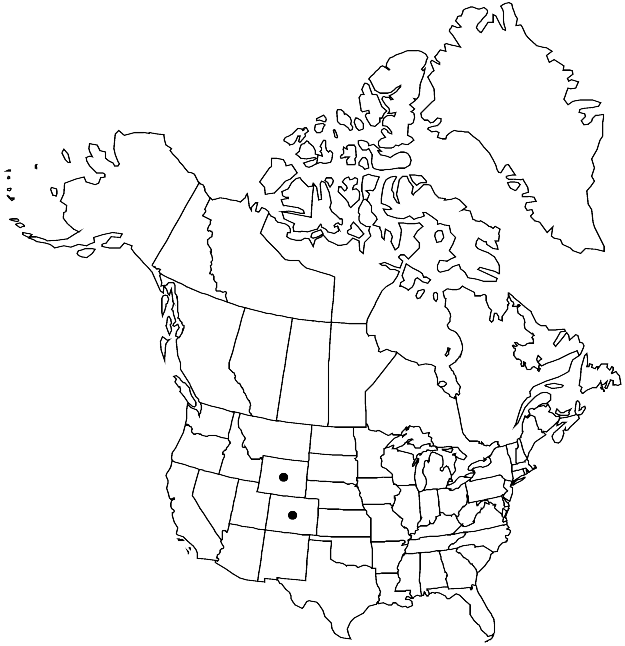Brachythecium brandegeei
Bryologist 65: 125. 1963.
Plants medium-sized to large, in loose mats, green to yellowish. Stems to 6 cm, ascending to upright, terete-foliate, quite loosely irregularly pinnate, branches to 6 mm, straight, terete-foliate. Stem-leaves erect, closely imbricate, ovate to broadly ovate, broadest at 1/10–1/7 leaf length, strongly concave, not to somewhat plicate, 1.6–2 × 0.9–1.2 mm; base slightly rounded, inconspicuously decurrent; margins recurved usually only near base, entire to slightly serrulate; apex abruptly contracted or gradually tapered, acumen filiform; costa to 40–70% leaf length, weak, terminal spine absent; alar cells short-rectangular, small, 18–30 × 12–20 µm, walls moderately thin, region often inconspicuously or not differentiated, of 6–8 × 5–6 cells, pellucid or moderately opaque; laminal cells elongate, 40–80 × 8–12 µm, walls not or moderately porose; basal-cells 12–15 µm wide, walls slightly thicker, region in 5 rows. Branch leaves smaller, narrower. Sexual condition dioicous. Sporophytes unknown.
Habitat: Wet soil in mountain tundra, rock, wet cliffs
Elevation: high elevations (3100-3900 m)
Discussion
Brachythecium brandegeei occurs only in Colorado (Clear Creek, Park, Summit counties, W. A. Weber (pers. comm.) and Wyoming (Y. Kosovich-Anderson and M. S. Ignatov 2010). Brachythecium brandegeei is difficult to distinguish from B. udum. Both species are characterized by ovate leaves abruptly contracted to acumen, broad laminal cells, subentire leaf margins, and both are apparently dioicous (male plants and sporophytes unknown). Differences in ITS sequences (M. S. Ignatov and I. A. Milyutina 2010) indicate independence of these species, though their morphological characters overlap. The following features may be listed for differentiation of B. brandegeei (versus B. udum): plants intense green (versus light to pale green to stramineous), small to medium-sized (versus medium-sized to large), leaves not plicate (versus plicate), laminal cells often broad in the distal leaf (versus broad in proximal leaf, narrow distally), alar cells quadrate, slightly wider than laminal cells, thin-walled, in a rather inconspicuous group (versus variable from similar in width with laminal cells to often conspicuously enlarged and forming a pellucid area in leaf corners).
Selected References
None.
Lower Taxa
"long" is not a number."broad" is not a number.
